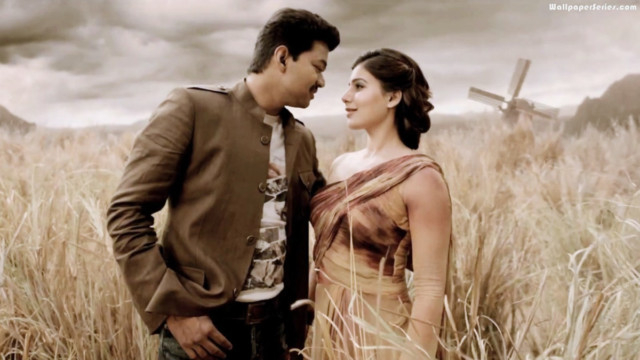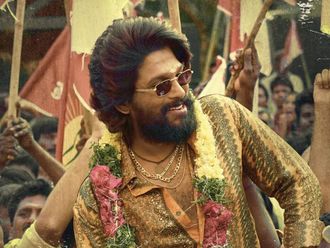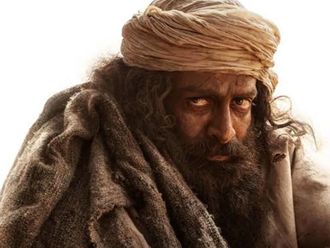
If you’ve seen A.R. Murugadoss’s Ramana, you are likely to agree that his Kaththi is just a stylish version of it — made with a lavish budget.
There’s a bigger star, bigger issue, prettier heroine (with no scope for performance) and a lot of melodrama.
If Vijayakanth was the hero of Ramana, he’s replaced by Vijay in this film. It’s evident in the scene where Jeeva (Vijay) tells his villagers not to give up farming even if he dies, after being beaten up by corrupt police officers. He’s taken back inside for another round of beating and we see hundreds of farmers weep. It is reminiscent of the martyrdom that features in many old texts.
Kaththi is a commercial film and, naturally, audiences expect some heroism, action and romance. But here, Murugadoss has portrayed his hero as an idol, a man of the masses willing to sacrifice his own life. What would he do to make it a masala film? He smartly uses the dual hero concept by introducing us to a crook Kathiresan (Vijay), doing time in a Kolkata prison. As a rule in any film with two heroes, Kathiresan finds himself in the shoes of Jeeva.
Kathiresan is too cool to care about a bunch of senior citizens. But eventually when he comes to learn about Jeeva, he’s ashamed and guilty. He plans on running away, but a scene requires him to show his heroic side — a fight sequence where Kathiresan happily announces that he will henceforth be called Jeeva.
Later, we see Kathiresan gradually turning into another idol of sorts. But his transformation from Kathiresan to Jeeva is not handled as convincingly as it ought to be. Murugadoss uses this section of the film to indict multinational corporations (MNC), who steal the livelihood of farmers, and the media for not willing to give villagers a voice.
Towards the end, Murugadoss goes all guns blazing to bore us with startling statistics about the takeover of MNCs.
All this is extremely preachy and unrealistic to believe or even commend.
Kaththi does feature a few good moments. A fight sequence involving a bunch of coins is extremely well choreographed. The coins were donated for Jeeva’s cause by a group of farmers now employed in low-paying jobs. When he uses these coins to beat the henchmen sent by MNC stooges, there’s a strong emotional reverberation to the scene. But it’s also flawed because the fight takes place in the dark, but for some reason audiences can very clearly see Vijay.
When this action sequence is repeated in the climax, it loses its charm because we appreciate something creative only the first time. It becomes monotonous when it’s done the second time. But it’s these masala moments that send Vijay’s fans into a frenzy.
Vijay shines in both roles. As Jeeva, he touches your heart with an honest performance. But Murugadoss’s others characters are extremely weak. The film features the most uninspiring romantic track that makes us feel extremely sorry for Samantha.
The film may have still worked even without a heroine and a love story. Neil Nitin Mukesh looked terrific in the initial moments, but once again suffers due to his poorly developed character.
Kaththi, which means sword in English, is largely blunt at the important edges. It reeks of melodrama and the need to preach.












